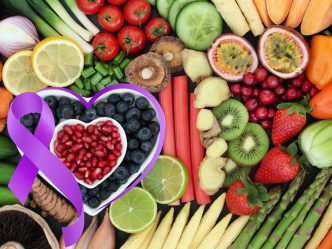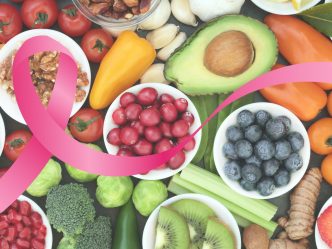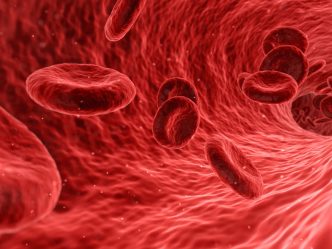For the past nine months, you’ve been working hard to grow a baby.
Now here comes the really hard part.
“Many moms do tell me that getting breastfeeding started can be the most difficult part of having a baby,” said Teresa McCullen, lactation consultant at Augusta University Health, “because just like in pregnancy, you are the sole source of nutrition for this very important small person in your life.”
And if you are what you eat, diet can’t matter more than at this moment. Right?
Well, yes and no.
Your diet is actually much more important during pregnancy, when everything you eat goes to your baby in a much more direct route. Which is why doctors typically advise pregnant women to avoid foods like lunchmeat, sushi, raw eggs, raw sprouts or rare meat, in case of bacteria that could lead to food poisoning, dangerous for both mom and baby during pregnancy. Too much caffeine has also been related to miscarriage.
But when you’re breastfeeding, the route is a bit more indirect. So no foods are necessarily off limits, although experts still advise moderate caffeine since it will pass to your baby in breastmilk.
Just like in pregnancy, it’s important to stick to an overall healthy diet. After delivery it’s still important, both for your baby and for you to have the energy and stamina to care for a newborn. “On a micronutrient level and a macronutrient level, breastmilk can look different if your diet is chronically deficient in nutrients,” said McCullen.
So follow the diet you had while you were pregnant, which should include six small meals a day—“including a variety of foods as close to their natural state as possible,” said McCullen, such as whole grains, fresh fruits and vegetables, and lean meats and beans.
If you’re worried that what you’re eating isn’t healthy enough, keep a food diary—use an app or pen and paper—so that you can go over your diet, realistically, with your doctor or lactation consultant.
You can also continue taking prenatal vitamins, including B vitamins, which are essential for energy and milk supply.
Hello, pre-pregnancy jeans
The great news? If you’re breastfeeding, you can still eat a lot—and be back to your pre-pregnancy weight within a year. For the average woman, experts recommend a 2,000-calorie-a-day diet, plus an additional 500 calories to feed milk production.
“We do not recommend a restrictive diet when breastfeeding,” said McCullen. “That’s because you burn 500 to 800 calories a day when you breastfeed. Breastfeeding in and of itself is a way for mothers to burn calories and to reduce weight.”
What about gas?
Even though no foods are off limits, that food diary might help you track if any foods you’re eating are making your baby fussy or gassy—or worst-case scenario, if they’re causing colic.
If you’ve ever experienced even some of the nonstop, inconsolable crying of a newborn with a gassy belly, you never want to live through that again.
Dairy products, gassy foods like broccoli or cabbage, grains and nuts, and spicy foods could all be culprits. So just pay attention if your baby happens to protest vigorously every time you eat Thai food—and hold off, at least for a few weeks until your baby’s belly matures.
At the same time, if you know that you or your partner have a specific allergy or sensitivity to food, it’s probably a good idea for you to avoid it so you don’t inadvertently trigger a reaction in your baby. For example, some folks who are lactose intolerant still choose to eat ice cream—but don’t be surprised if your baby seems uncomfortable after you dig into a dish of butter pecan.
‘I want more milk’
Finally, it’s extremely common for mothers to worry about whether or not they’re producing enough milk, especially since you can’t see how much is going into your baby’s belly.
Here’s where diet can help too, said McCullen. Oatmeal, for example, is known anecdotally to increase milk production. Garlic too can boost milk supply, as well as brewer’s yeast, which is a common ingredient in lactation cookies.
Certain herbs such as fenugreek—either alone or in combination with other herbs—can be brewed into a tea or a sweet drink to help improve your supply.
But the best advice? Relax, talk with your lactation consultant, and go back to that varied diet. “A lot of mothers tell me, ‘I want to breastfeed, but I don’t eat well,’” said McCullen. “I usually say to them, ‘You ate well enough to grow a baby; I bet you could eat well enough to breastfeed.’ Eating poorly one day isn’t going to mean you’ll make less milk. You don’t need an ideal diet—just an overall healthy one.”





